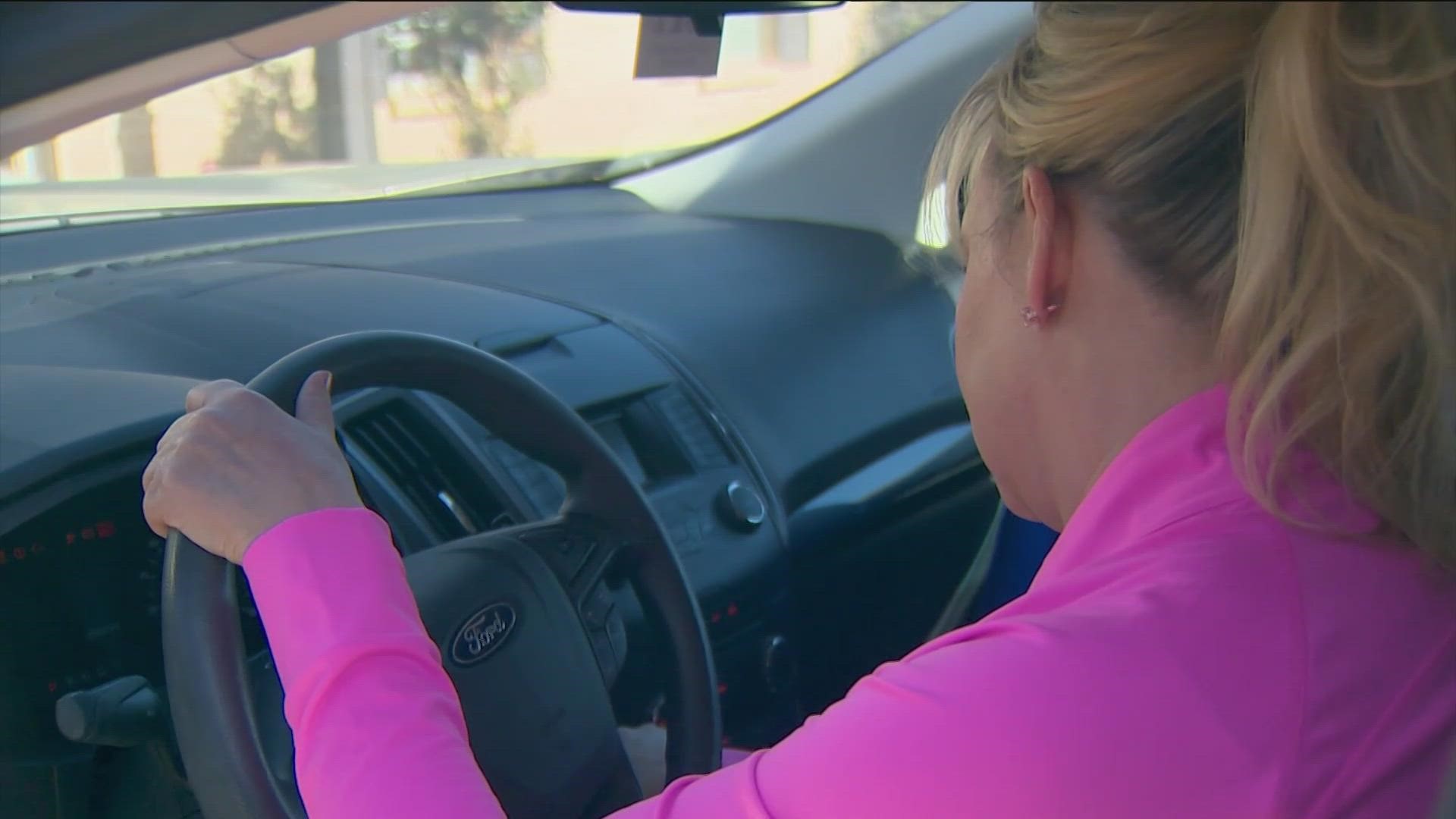AUSTIN, Texas — Thousands of Austin residents are waiting weeks for a process that should just take only minutes: submitting a police report for crimes such as burglary, minor assaults or a noisy neighbor to begin an officer response or investigation.
Meet Rachel Elsberry, who lives in North Austin and became a victim of neighborhood crime on the second day of 2023.
“I got a knock on my door from a neighbor. He said, ‘Hey, I just wanted to let you know someone busted out your car window and they got mine, too,’” Elsberry said. “It was just like, this is going to be a hassle and what am I going to do?’”
She regularly attends neighborhood meetings with police and knows the importance of filing a police report.
“We are always encouraged to report crime. We want to understand trends about crimes and what is going on in the neighborhood. It’s the way police allocate resources,” Elsberry said. “It is about the larger picture. Not this one small incident for me.”
Elsberry called the City of Austin’s non-emergency number. More than two weeks later, she was still waiting on a call back from the Austin Police Department (APD).
“Realistically, how long do you think it will take for me to hear back from someone? What kind of time are you seeing this take?” Elsberry asked a 311 operator on a recent follow-up call.
“The Austin Police Department has not given us a time frame, but they are really backed up with reports,” the operator responded.
The KVUE Defenders learned Elsberry’s case was sitting in a pile of nearly 6,000 people awaiting a return call to file a police report.
Here’s how the system works: When a person calls 311, an operator routes the call to the appropriate agency – like Animal Control, Public Works or Code Compliance – for a call back.
Austin police have gotten a growing number of those calls, rising 52% from 2021 to 2022 with 195,166 calls – an average of more than 500 calls a day.
Because of that increase – and fewer staff to return the calls – more and more people are waiting for police to call them back.
As of mid-January, 5,741 people are dealing with a wait time of a month or longer, according to Austin police.
Police Chief Joe Chacon said the problem is frustrating for police and citizens alike.
“It’s not good customer service. It’s not where we want to be as a department,” Chacon said.
In recent years, 311 has been used more and more as the first point of contact for people needing the police.
When the COVID-19 pandemic started, APD announced it would route more non-emergencies through that system to cut down on officer interactions with the public. As the department had unprecedented retirements and resignations, it also widened the types of calls for which it would no longer send a police officer and, instead, handle the matter with a police report over the phone.
“Various things such as you are reporting a theft has already occurred, or you are reporting an assault that happened yesterday, and there is no ongoing danger at that moment,” Chacon said. “We are pushing a lot of those calls to the 311 system.”
At the same time, the department struggled with having enough 911 operators, and a group of employees who were tasked with returning 311 calls were taken off that job and used for 911.
For months, the department has paid overtime to employees to help return calls to try to clear the backlog, but they are still months away from doing so, officials said.
Later this year, APD is putting new technology in place that officials say will allow citizens to call a non-emergency number and talk to an automated operator, removing the need for a police department call-back.
In the meantime, in addition to making a report via 311, officials say that residents can also do it online now by going to ireportaustin.com. That automatically generates a report and skips over the whole process of waiting for a call back.
Chacon also said that over the next couple of years, as APD graduates more cadets, he hopes the department will be able to dispatch officers to take reports in person as it did in the past. The next cadet class graduates in September.
Elsberry said as it turns out, she didn’t need a police report for an insurance claim. But she still came away from the experience seeing a part of the government not working as it should.
“It does erode that faith in institutions, in systems,” Elsberry said. “Getting that police report seems like something that should be relatively easy to do.”

